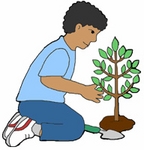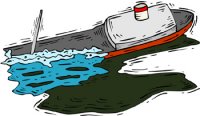
Worksheets and No Prep Teaching Resources
Reading Comprehension Worksheets
Caring for Earth

Caring for Earth
 Worksheets and No Prep Teaching Resources Reading Comprehension Worksheets Caring for Earth |
 Caring for Earth |
| edHelper's suggested reading level: | grades 3 to 4 | |
| Flesch-Kincaid grade level: | 3.02 |
|
Oil Spill
By Jennifer Kenny |

|
 1 On March 24, 1989, there was an oil spill from a ship called the Exxon Valdez. At least eleven million gallons of oil spilled. More than a thousand miles of Alaska's shoreline were hurt by oil. It was very bad. Clean-up went on for years. So many seabirds, bald eagles, sea otters, harbor seals, killer whales, and salmon were killed.
1 On March 24, 1989, there was an oil spill from a ship called the Exxon Valdez. At least eleven million gallons of oil spilled. More than a thousand miles of Alaska's shoreline were hurt by oil. It was very bad. Clean-up went on for years. So many seabirds, bald eagles, sea otters, harbor seals, killer whales, and salmon were killed. |
Create Weekly Reading Books
Prepare for an entire week at once! |
| Leave your feedback on Oil Spill (use this link if you found an error in the story) |
 |
Caring for Earth
|
 |
Earth Day Activities, Printables, Worksheets, and Lesson Plans for Kids
|
 |
Science
|